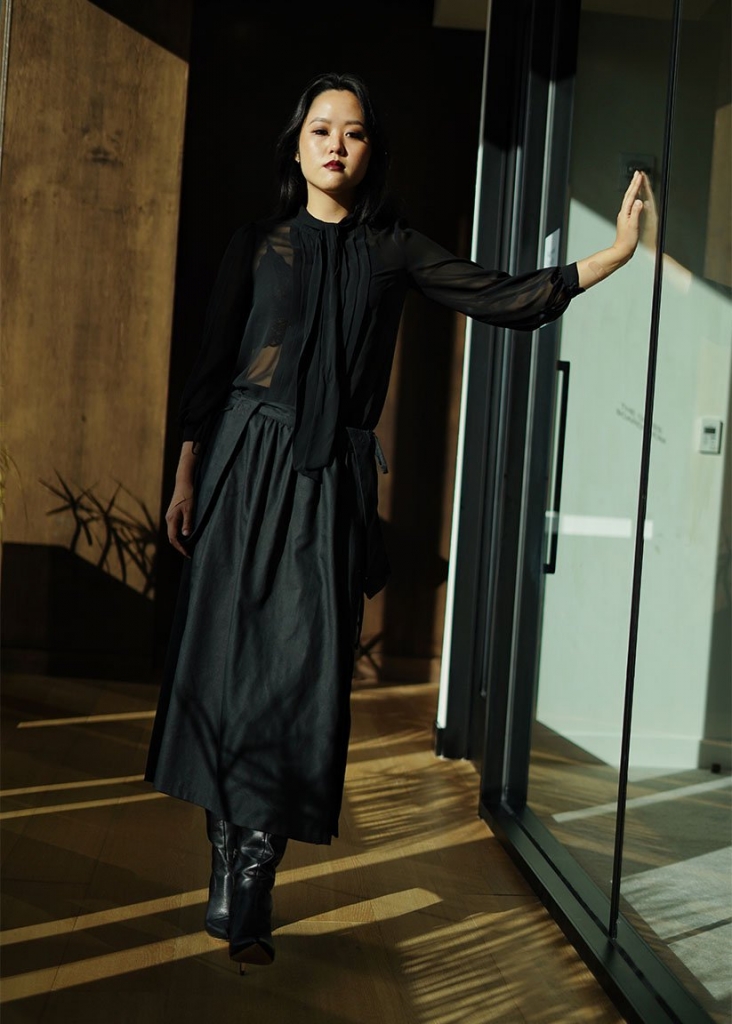
Sustainable. Ethical. These words and other related terms have permeated the fashion industry at unprecedented levels over the last several years. Since the start of 2020, the fashion search platform Lyst has seen a 37% increase in searches for sustainability-related keywords, with more and more brands seeking to attract these increasingly conscious consumers.
Despite the heightened interest, a lack of brand transparency, and the ill-defined nature of sustainable and ethical fashion, sows confusion and distrust among consumers; a barrier cited as a top deterrent to making sustainable and/or ethical purchases.
So, then what is the difference between sustainable fashion and ethical fashion? Which brands are doing both well? These conversations are ongoing within the industry, making it almost impossible to deliver a concrete answer. Still, we’re going to do our best to break down the complexities and implications of these labels with a list of six burgeoning brands, committed equally to both.
The first thing to note is that no industry-wide definition currently exists for “sustainable fashion” or “ethical fashion.” Both terms are relatively new to the industry and are often used interchangeably to denote some level of positive deviance from mainstream production methods.
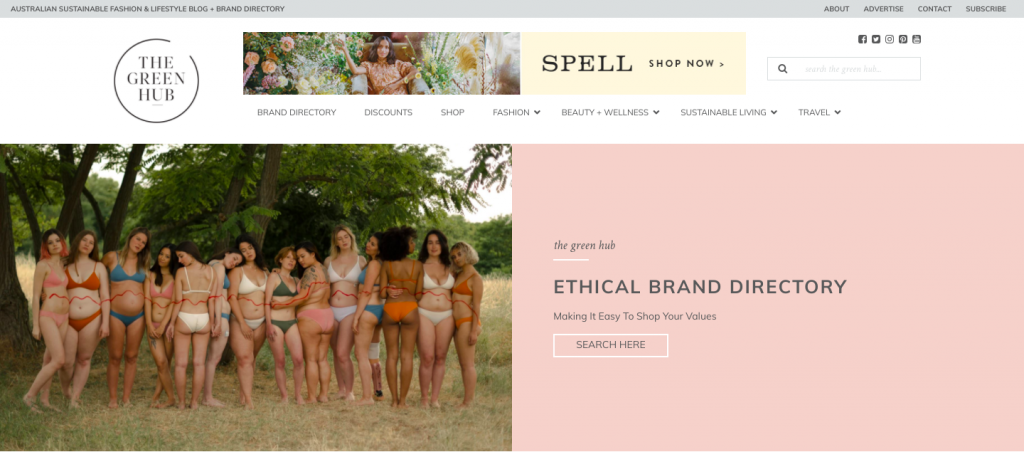
The Green Hub calls out the common myth that ethical fashion only concerns how humans are treated in the making of a garment, while sustainable fashion focuses only on the environmental impact of said garment. When communicating with consumers, this is most commonly the implied definition, as evidenced by the many brands touting “sustainable” capsule collections that use environmentally-friendly materials, without openly disclosing information on the working conditions of those making the garments.
However, as fashion designer and activist, Sass Brown discussed with ‘Fashion Hedge’, “I think the term ethical is open to interpretation, as my ethics are likely different from yours and highly personal.”
Ethics are highly personal, and therefore what does and doesn’t fall under the vague, ethical fashion umbrella is too. Is it not the ethical decision to consider the ways our current treatment of the environment determines its fate for future generations? Are exploitative working conditions not inherently unsustainable? In this way, it is hard to entirely separate “sustainable fashion” from “ethical fashion. One is a subset of the other, meaning the tendency to use the terms interchangeably is neither wholly correct nor incorrect.
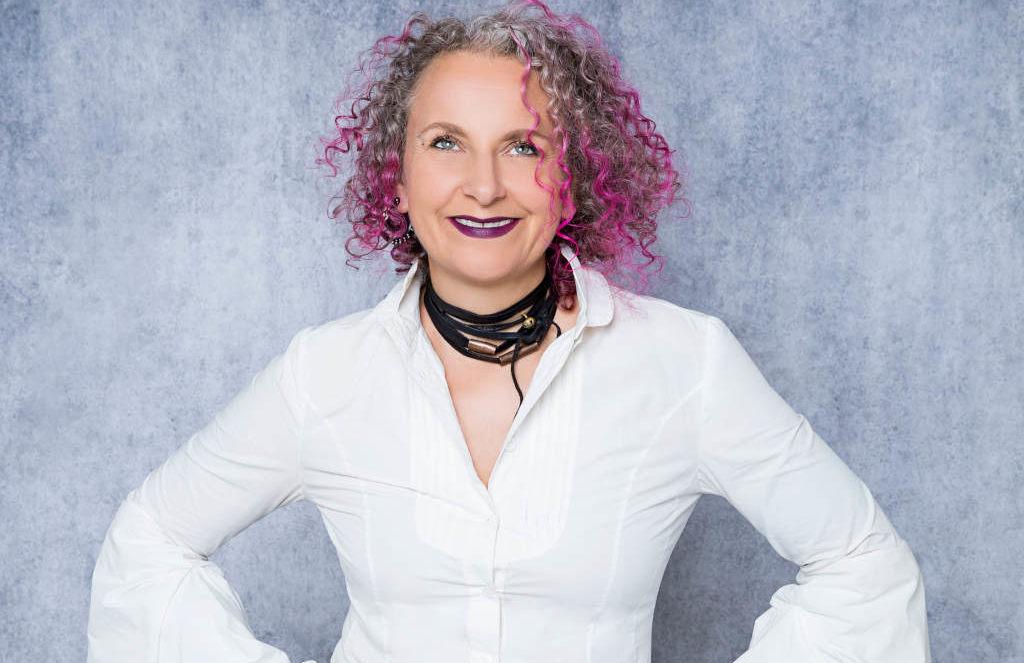
and slow design. Image Credit: Eco-Age
“Communication at the point of sale, or about specific products or collections regarding sustainability, is often focused on certain very specific aspects, like … a raw material that is more sustainable compared to the (one that’s typically) used,” McKinsey’s Saskia Hedrich told CNN Style “Objective criteria for rating sustainable fashion are missing.”
All this contributes to consumer confusion around what purchases are truly “sustainable” or “ethical” in all the ways that matter to them as individuals.
The Global Fashion Agenda, a sustainable fashion leadership forum, outlined eight key metrics for gauging the industry’s progress on this front. Most of these platforms require fashion incumbents to fundamentally transform almost every facet of their business to achieve meaningful, holistic change.
This progress has been and will continue to be slow. Change on this scale is crucial to building a better fashion industry but lacks the direction and clarity consumers are craving when it comes to making intentionally positive purchases.
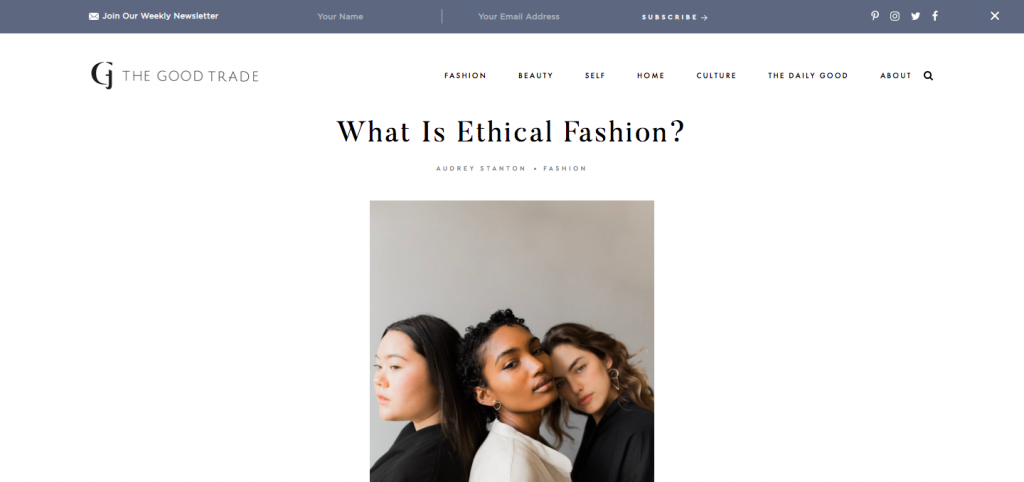
Image Credit: The Good Trade
Brand rating database Good on You says the solution to navigating this ambiguity is for consumers and brands to prioritize transparency. This way shoppers can adequately assess the actions a company is taking and make choices in accordance with their self-defined values. This is why the conversation around sustainable and ethical fashion is so often centered around emerging designers and brands that have operated this way from the start.
“The power of emerging designers and new fashion businesses is that they can exemplify new ways of doing business,” said Sarah Needham, knowledge exchange manager at the Centre for Sustainable Fashion.

fashion industry. Quote Credit: Vogue Business
So no matter how you define “sustainable fashion” or “ethical fashion” the real hallmark of both is transparency. To answer who’s doing this well, here are six young brands that lead with a transparent, foundational concern for both people and the planet.
Alice Alexander
Mary Alice Duff launched Alice Alexander in late 2017 to address the lack of size diversity she found within sustainable fashion. Duff previously worked full-time in the nonprofit sector and was committed to using her new brand to promote social and environmental well-being from the start. Alice Alexander operates on a made-to-order, direct-to-consumer model that allows for flexible sizing, reduced waste, and diligent oversight over the production process, ensuring fair wages for all workers. The small team creates versatile basics from their Philadelphia showroom/studio, using only earth-friendly, biodegradable fabrics and recyclable packing materials.
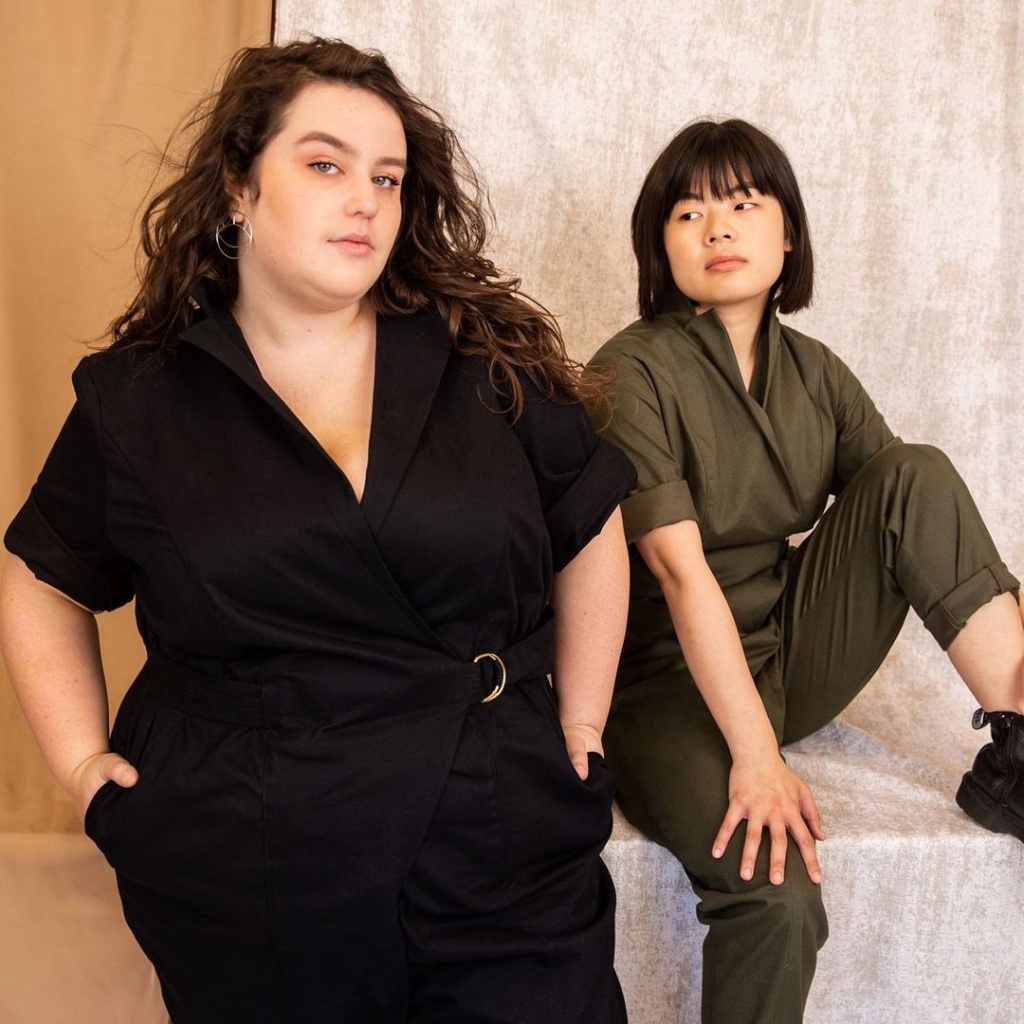
The Classic T-Shirt Company
Husband and wife duo Paul and Olga combined their technology and fashion industry experience to launch The Classic T-Shirt Company in 2018, creating wardrobe staples for both men and women in ways that benefit everyone involved. Produced in Los Angeles, The brand ensures sustainable and ethical compliance at every step of the process, creating fair trade T-shirts out of 100% organic preshrunk cotton. The Classic T-Shirt Company believes that fostering communities based on mutual respect will build a better world, so they pledge 1% of their equity, profits, and time to world-changing causes, including safe water, tree planting, and ocean cleanup.
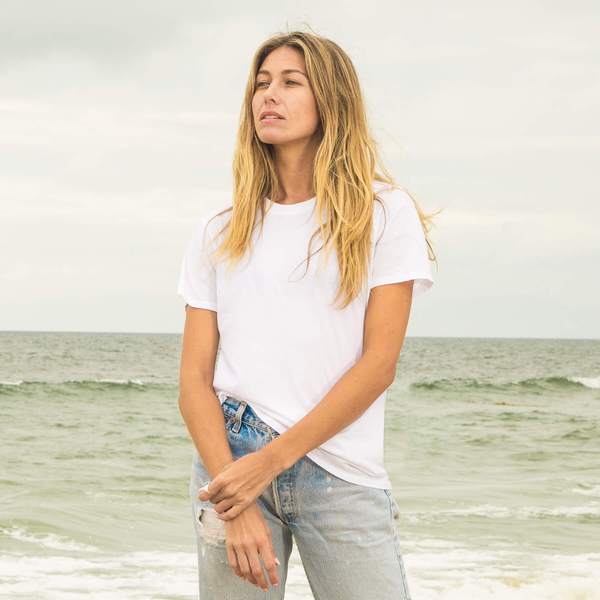
Selva Negra
Born in Brooklyn, based in Los Angeles, Selva Negra is the brainchild of design duo Kristen Gonzalez and Sam Romero launched in 2016. The pair draws inspiration from their Latina heritage, seeking to support women and their individuality through uncomplicated silhouettes and ethical production practices. Selva Negra carefully chooses their partners, collaborating closely with value-driven sourcing associates and manufacturers to ensure that the production process is as clean and mindful as the intended design. Selva Negra is also heavily involved with a medley of nonprofits, believing that building a better community starts with companies making a conscious effort to participate in the betterment of humanity.
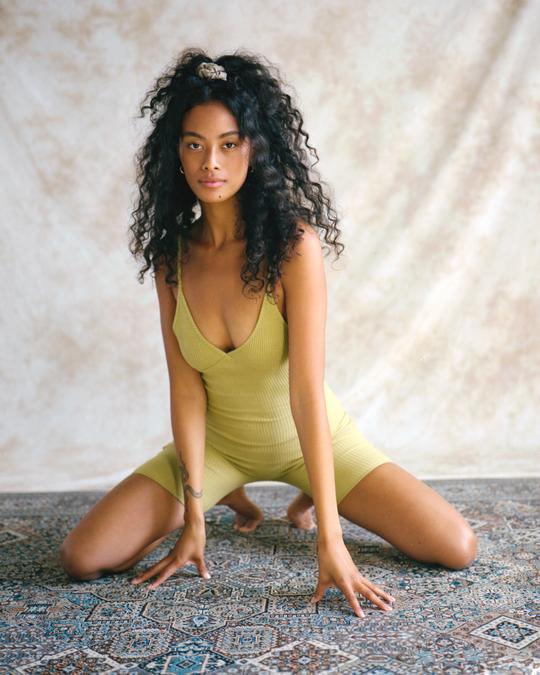
Image Credit: Selva Negra
Most Prominent Co.
Relaunched in 2019 by Avery Antonio and Maya Moran, Most Prominent Co. operates on the belief that “fashion can be a force for good,” creating products that don’t merely seek to do less harm but actively work to support causes that are important to them. Proceeds from their men’s and women’s streetwear-inspired designs have been donated to support initiatives such as healthy eating in low-income neighborhoods, victims of the California wildfires, and the REMAKE World project where 15% of proceeds were committed toward empowering female garment workers. All of this is on top of their commitment to responsible sourcing, fair working conditions, and creating products designed with longevity in mind.
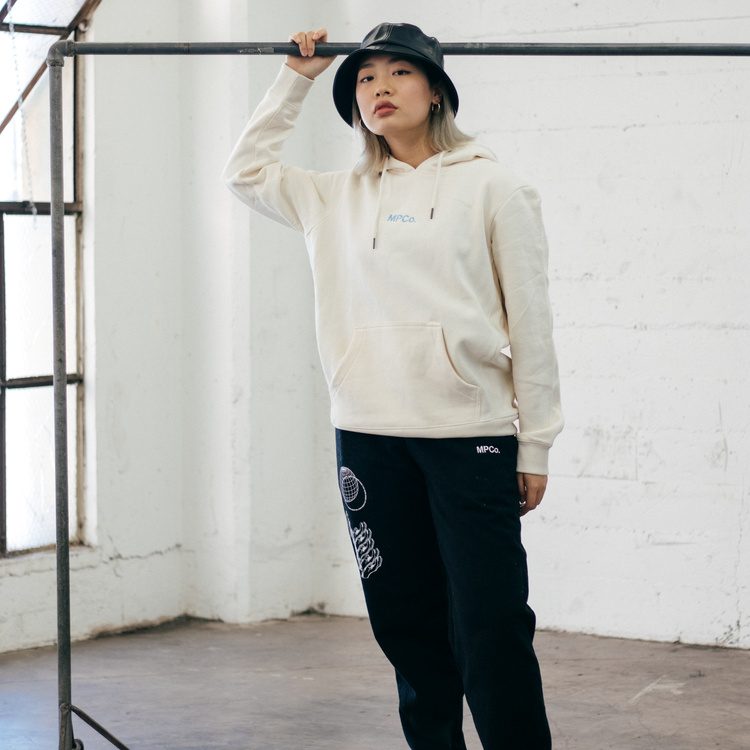
Image Credit: Most Prominent Co.
Two Days Off
For Gina Stovall, the realities of climate change were a part of her everyday life working as a geologist and earth scientist, inspiring her to launch Two Days Off in 2018. Each piece is made locally in Los Angeles and taps into Gina’s scientific roots, focusing on slow growth that allows for experimentation and discovery of the best, most socially and environmentally conscious ways to operate. Her womenswear designs capture a laid-back, minimalist aesthetic and are crafted from biodegradable deadstock fabric. With a focus on waste reduction, Two Days Off produces unique, small-batch collections and ships their products in plastic-free packaging.
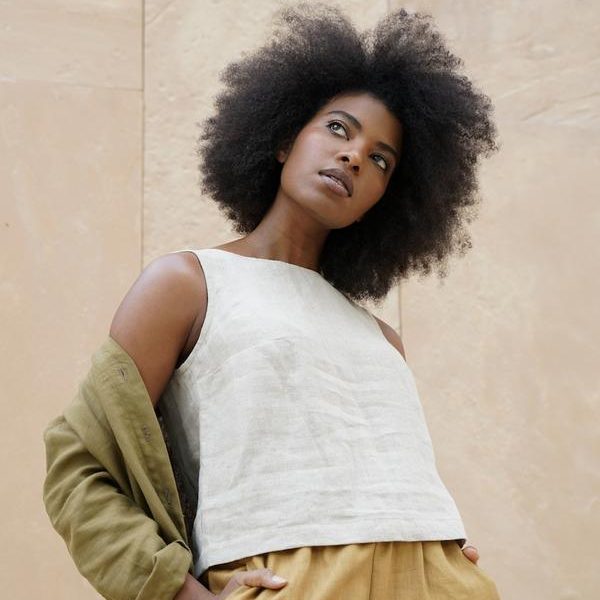
Grant BLVD
Kimberly McGlonn grew up around activism, witnessing her parents’ work and continuing the same practices into adulthood, with her work as a social justice teacher. Seeking to do more, McGlonn founded Grant BLVD as a way to be of service to both marginalized communities and the planet. Grant BLVD salvages clothing from thrift stores to create undeniably stylish and subversive women’s clothing used to battle systemic problems like climate change and mass incarceration. The brand uses no new water, barely any new materials and design, cuts, and sews every piece of clothing in house.
